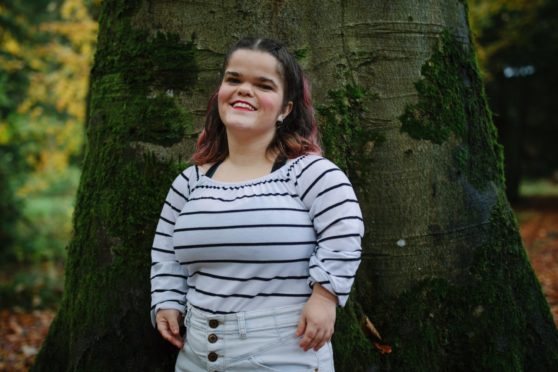
From a young age, Abbie Purvis knew she would follow her mum and grandad into acting.
They had appeared in some of the biggest films ever made – from Star Wars to Harry Potter. But, when she was a little older, Abbie realised that, while she wanted the same job, she did not want the same career.
Growing up in a family filled with performers, Abbie knew the industry tended to typecast people with dwarfism and, as a young girl, she wondered why there were no leading characters who looked like her.
“I remember growing up thinking I would be a Disney princess, but I didn’t see any princesses who looked like me,” said Abbie, who lives in Kilmarnock. “It was like, ‘Oh, OK, so I have to be one of Snow White’s seven men’.
“I’ve got an older sister, Megan, who’s average height, and I remember her dressing up as Snow White and seeing her and thinking, ‘Yes, she’s Snow White’. Then I looked at myself and realised I was never going to play that character – I was always going to be the dwarf. I knew where I fitted, and I wasn’t going to break out of it.
“It wasn’t until I was older I stopped and thought, ‘Hold on a second, this isn’t fair – I want to be the Disney princess for once.’”
Although the industry has changed significantly since her granddad, Jack Purvis, played roles in classic 1980s hits, including the Star Wars franchise, Labyrinth, Willow and Time Bandits, Abbie says more still needs to be done to improve how people with disabilities are portrayed on screen – and she’s determined to be a voice of change.
When attending auditions, Abbie wants casting agents and directors to see her like any other confident, talented young woman, rather than simply focusing on her height, which she believes held her back when applying for drama school.
The 21-year-old explains: “I’ve grown up in the industry and I’ve seen how it’s progressed from when my grandfather was acting, then my mother, and now me. All of us having dwarfism, our experiences are different, but they’ve got a lot of similarities.
“My grandad was in all the major Star Wars films, Labyrinth and Time Bandits, the big films from that era. My mum, Katie, followed in his footsteps with roles in Harry Potter. I thought to myself, ‘I could do that, I could be a creature, I could be a goblin – but I know that I’m worth more than that.
“It wasn’t until I watched Game Of Thrones when I was about 16 and I saw Peter Dinklage playing Tyrion Lannister that I realised things were changing. Although the story does highlight that he has dwarfism, he wasn’t wearing a mask, he wasn’t belittled or the butt of the joke. He very much stood on his own.
“There should be nothing to stop us playing a role that is the love interest or the one who causes the drama because that’s life. We all live a life, so why can’t we see our story represented?”
She continues: “I auditioned for drama school and was rejected from everywhere because they were like, ‘We have never had someone like you before, we don’t know what to do with you’.
“It didn’t annoy me but it sort of made my disability real to me. Growing up in an industry that you’ve seen work for your family, and then stepping in on your own only to be rejected, makes you question why. What, just because I don’t want to play the goblin or the leprechaun, you don’t want me?
“It was a reality check because I realised I wasn’t living in the world that I thought I was – the whole world I envisioned and thought I knew was completely different.”
Frustrated but still determined to be the catalyst for the change she wanted to see in society, after failing to land a place at drama school, Abbie decided if there weren’t parts available to her then she would simply write her own instead. Partly inspired by her own experiences, Abbie is currently writing a theatre production that she says will challenge the stereotypes and prejudices that, unfortunately, still persist.
“I wanted to write a piece of theatre that doesn’t highlight the fact the main character is a dwarf – they just happen to be played by a dwarf, telling a real story,” explains Abbie. “I wanted to highlight issues and draw on my own life experience at school, as well as friendships with people I know.
“I never knew I was really different until first year. Everything changes when you’re chucked into a high school where they haven’t seen you grow up – most of the kids were only seeing me for the first time at 11 or 12. They couldn’t understand, which caused a lot of problems. People just didn’t want me there. There was a lot of physical bullying and name calling.
“High school was about trying to make yourself fit in, knowing you’re not going to. You want to be one of the popular girls, but you don’t look like them. I think that’s a struggle everyone has growing up, but I obviously couldn’t change the way I looked. That’s why it’s so important to normalise difference within the showbiz industry because it can help to make real life a lot better.”
She adds: “Not everyone is as accepting as my family are. I was lucky to be born into a family where my brother, mum, granddad and great-grandad are little people. It’s almost the norm in our family – we actually joke with my dad and sister that they’re the odd ones out. But it can be totally foreign to people who aren’t in our world, and that’s why I started writing.”
To help her message reach an even wider audience, Abbie has also started working with ARC Scotland as one of seven “Divergent Influencers”, who will become the charity’s spokespeople for inclusion and accessibility.
She says her goal is to encourage people to see the person, not their disability, and hopes she can also speak up for other young people facing the same difficulties, improving life for future generations.
“People need to understand that we can have a life, fall in love and have a family – a lot of people still don’t get that,” she says. “I want it to become the norm that, if a little person is on TV, you’re not watching going, ‘Oh, they’re a little person’. You’re watching and saying, ‘OK, they are a character portrayed in the story that works’.
“Sinéad Burke, who was the first little person to appear on the cover of Vogue, is a friend of mine. She said to me, ‘Unless you do it, nothing is going to change – you can’t sit and wait for someone else’. So, that’s what I’m doing.”
Charity enlists role models to help break the mould for young people
Progress has been made to tackle discrimination towards those living with a disability, but charity ARC Scotland says the pandemic has highlighted much more still needs to be done to create a fair and equal Scotland for all.
With the Divergent Influencers campaign, the charity aim to give a voice to those who face disabilities such as autism and mental health problems.
Scott Richardson-Read of ARC Scotland, said: “In many ways, Scotland has been groundbreaking in tackling discrimination young people with disabilities or other additional support needs experience – but it hasn’t gone far enough.
“Coronavirus has allowed us to see the system isn’t fit for purpose. Young people with additional support needs still face many extra barriers other young people don’t experience. We need to remove discriminating attitudinal barriers people have about the ability of young people with additional support needs to provide positive benefit to work, education, their communities and beyond.”
Each Divergent Influencer is in their early 20s, and Scott says providing role models is key to empowering young people to speak up. He continued: “This project seeks to build on the amazing skills and abilities young people with additional support needs have and to encourage them, and in turn others, to speak their truth to power.
“The project seeks to help young people with additional support needs influence Scottish policy, strategic thinking and improve the lived experience of other young people as they move into young adult life.
“Many people in their everyday lives don’t hear from young people with additional support needs.
“Hearing from such a diverse group of young people opens our eyes to the way other people live and also provides insight, ideas and solutions into the barriers we all face and can help us to create an equitable society.”

Enjoy the convenience of having The Sunday Post delivered as a digital ePaper straight to your smartphone, tablet or computer.
Subscribe for only £5.49 a month and enjoy all the benefits of the printed paper as a digital replica.
Subscribe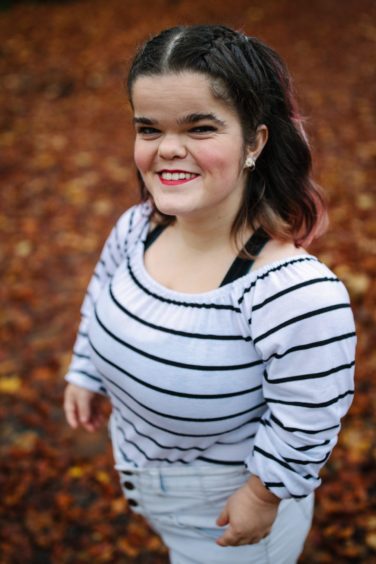 © Andrew Cawley
© Andrew Cawley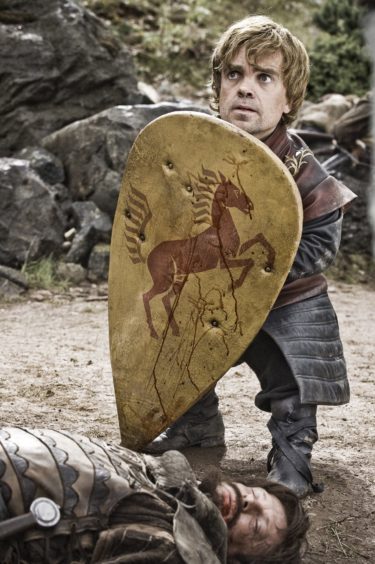 © Hbo/Kobal/Shutterstock
© Hbo/Kobal/Shutterstock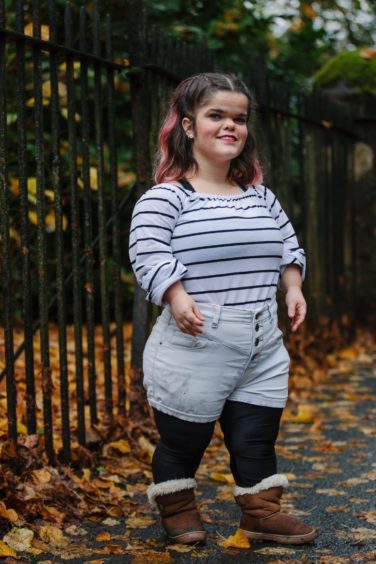 © Andrew Cawley
© Andrew Cawley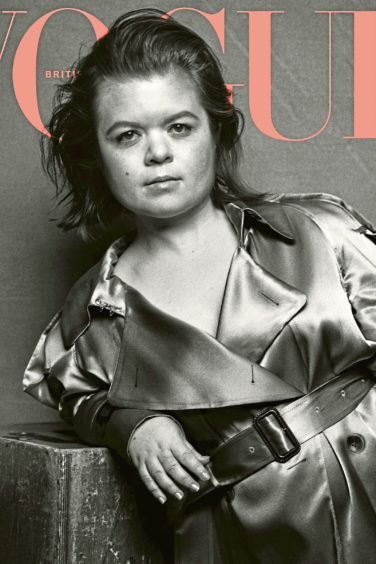 © SYSTEM
© SYSTEM